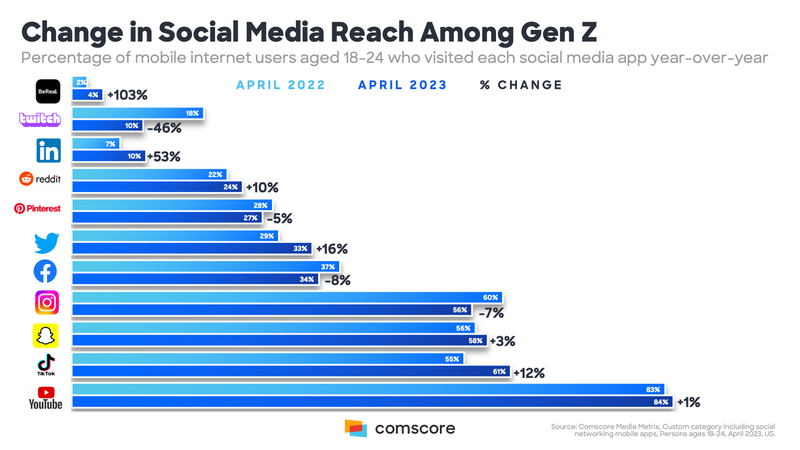Generation Z, born between the late 1990s and early 2010s, grew up in a drastically different environment compared to Baby Boomers. The advent of digital technology, shifts in social norms, and the rise of global awareness have all contributed to a unique upbringing. This blog post explores ten aspects of Gen Z’s upbringing that Boomers might not fully understand, highlighting the stark differences between the generations.
1. Digital Natives

From the moment they were born, Gen Z has been surrounded by technology. These digital natives have never known a world without the internet or smartphones. This constant connectivity has shaped their social interactions, learning styles, and work habits.
While Boomers may see technology as a tool, for Gen Z, it’s a way of life. The ease with which they navigate devices often surprises older generations. Their ability to multitask with gadgets is second nature.
Interestingly, a Pew Research study found that 95% of teens have access to a smartphone, highlighting the ubiquity of technology in their lives.
2. Social Media Savvy

For Gen Z, life unfolds on social media platforms. They use these virtual spaces not just for connection but for self-expression and activism. Whether it’s TikTok dances or Instagram stories, they have a knack for creating engaging content.
Crucially, this generation uses social media to advocate for causes they believe in, amplifying voices around issues from climate change to social justice. This activism often puzzles Boomers.
A fascinating aspect is how Gen Z navigates online identities, seamlessly switching between platforms, understanding algorithm nuances, and maintaining a curated digital presence.
3. Diverse Cultural Exposure

Gen Z has grown up in an era of unparalleled cultural exchange. The internet has opened avenues for them to explore diverse cultures, traditions, and languages, right from their homes.
The exposure to global perspectives has fostered a generation that is more accepting and understanding of differences, embracing diversity as a norm rather than an exception.
They are often more aware of international events and cultural nuances than Boomers, who grew up in a more locally-focused environment. This global awareness influences their lifestyle choices, from cuisine to fashion, and even political views.
4. Mental Health Awareness

Mental health conversations are more prevalent among Gen Z than any other generation. They’ve grown up in a time where discussing mental health is less stigmatized, thanks to campaigns and media advocacy.
This has led to greater awareness and more open conversations about mental health issues, encouraging peers to seek help without shame. Unlike Boomers, who often faced stigma, Gen Z is breaking barriers.
An interesting statistic shows that about 70% of Gen Z believes mental health is as important as physical health, reflecting a significant cultural shift in health priorities.
5. Environmental Consciousness

Gen Z is often at the forefront of environmental activism, inspired by figures like Greta Thunberg. Climate change and sustainability are major concerns for them, unlike Boomers who were less exposed to these issues in their youth.
Their commitment to environmental causes is evident in their lifestyle choices, from supporting eco-friendly brands to participating in climate strikes. They are passionate about making a difference.
Interestingly, a survey by the Pew Research Center found that 76% of Gen Z believes that humans can do more to combat climate change, showing their proactive stance on environmental issues.
6. Flexible Career Paths

Traditional career paths don’t appeal much to Gen Z. They’re drawn to flexibility, remote work, and the gig economy. This flexibility in career choice often perplexes Boomers, who pursued more linear career paths.
Gen Z values work-life balance and seeks opportunities that align with their personal interests and values. Freelancing, entrepreneurship, and side hustles are common among them.
A Harvard Business Study highlighted that 74% of Gen Z prefer flexible work schedules over traditional 9-to-5 jobs, showcasing a shift in work culture and expectations from previous generations.
7. Emphasis on Education

Education for Gen Z is more dynamic and interactive. With access to online resources, virtual classrooms, and educational apps, learning is more personalized and flexible.
Unlike Boomers, who experienced a more rigid educational structure, Gen Z enjoys a plethora of resources at their fingertips. They value skill-based learning and seek out courses that align with their career aspirations.
A National Education Association survey indicates that 67% of Gen Z feels that education should focus more on career preparation, reflecting their pragmatic approach to learning.
8. Inclusivity and Equality

Inclusivity and equality are core values for Gen Z. They’ve witnessed and participated in movements advocating for gender equality, LGBTQ+ rights, and racial justice.
This generation is committed to creating an inclusive world where everyone feels valued and respected. Their advocacy often challenges traditional norms, leaving Boomers both impressed and perplexed by their determination.
A GLAAD survey found that 20% of Gen Z identifies as LGBTQ+, highlighting their strong connection to inclusivity and equality movements. Their efforts continue to shape societal views on acceptance and diversity.
9. Globalized Mindset

Growing up with the internet has given Gen Z a global perspective. They connect with peers worldwide, sharing ideas and experiences, leading to a globalized mindset.
Their awareness of global issues and cultures is unparalleled, often making them more empathetic and informed. This mindset contrasts with Boomers, who grew up in a more insular environment.
Surprisingly, a Salesforce report found that 58% of Gen Zs believe they can have friends from any part of the world, showcasing their comfort with international interactions and collaborations.
10. Adapting to Rapid Change

Gen Z has grown up in an era of rapid change. From technological advancements to societal shifts, they’re accustomed to adapting quickly.
Their resilience in the face of change is a defining trait, often surprising Boomers who experienced slower-paced evolution. Gen Z thrives on innovation and development.
For example, a Deloitte survey revealed that 59% of Gen Z feels optimistic about the future, believing they can adapt to changes that come their way. This adaptability is a key strength they bring to the modern world.

